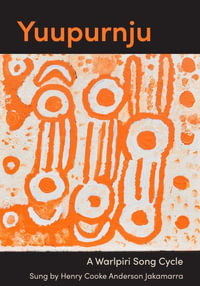Initially branching out of the European contradance tradition, the danzón first emerged as a distinct form of music and dance among black performers in nineteenth-century Cuba. By the early twentieth-century, it had exploded in popularity throughout the Gulf of Mexico and Caribbean basin. A fundamentally hybrid music and dance complex, it reflects the fusion of European and African elements and had a strong influence on the development of later Latin dance
traditions as well as early jazz in New Orleans. Danzón: Circum-Caribbean Dialogues in Music and Dance studies the emergence, hemisphere-wide influence, and historical and contemporary significance of this
music and dance phenomenon. Co-authors Alejandro L. Madrid and Robin D. Moore take an ethnomusicological, historical, and critical approach to the processes of appropriation of the danzón in new contexts, its changing meanings over time, and its relationship to other musical forms. Delving into its long history of controversial popularization, stylistic development, glorification, decay, and rebirth in a continuous transnational dialogue between Cuba and Mexico as well as New
Orleans, the authors explore the production, consumption, and transformation of this Afro-diasporic performance complex in relation to global and local ideological discourses. By focusing on interactions
across this entire region as well as specific local scenes, Madrid and Moore underscore the extent of cultural movement and exchange within the Americas during the late nineteenth and early twentieth-centuries, and are thereby able to analyze the danzón, the dance scenes it has generated, and the various discourses of identification surrounding it as elements in broader regional processes. Danzón is a significant addition to the literature on Latin American music, dance, and
expressive culture; it is essential reading for scholars, students, and fans of this music alike.
Industry Reviews
"The book is arguably the most comprehensive study of danzón and will surely be of great help to future studies of Afro-Latin American music for many decades to come. It is also an excellent example of a combination of methods and analytical approaches in music studies, moving from historical sources to personal interviews, from printed books and articles to archives, from social phenomena to individual life histories, from ethnographic
observations to discourse analysis, from musical sonorous experiences to choreographic analysis, from records to scores."--New West Indian Guide
"[It is] a difficult circumstance in which the researcher's role as a promotor of new ideas and historical accounts should speak respectfully and attentively to the ideas of a local identity and to the historic tradition that also forms part of this imagination that builds the genre [of academic texts]. This aspect is addressed and well channelled in this book."--Boletín Música
"Danzón is a timely addition to the scholarship on expressive culture...Written in a sophistticated and lucid manner and demonstrating remarkable acumen, this book will be of special value to scholars of expressive culture, transnationalism, and the politics of aesthetics, performance, and identity in the Americas."--Latin American Music Review
"Although its topic suggests a specialized audience, the book is accessible and addresses a wide range of topics that are of interest in such fields as cultural history, sociology, and Latin American studies in general as well as ethnomusicology. Madrid and Moore are to be commended for sure an excellent, informative contribution to the literature. Recommended."--Choice

























